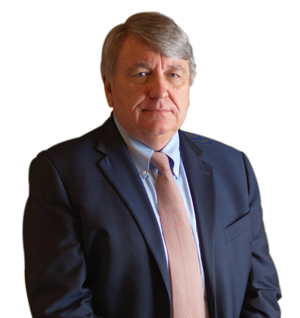A year-end message of gratitude from Board Chair Paul Cox
Dear friends,
It was remarkable to hear the sounds of lemurs echo through the David Brower Center in Berkeley in October, as Dr. Jonah Ratsimbazafy received the 2023 Seacology Prize. (The lemurs were on film, not in Berkeley!) Dr. Jonah, as he likes to be called, has spent his entire life in Madagascar fighting to save the exquisite but elusive primates. The secret of his success is enlisting indigenous villagers to protect the rapidly vanishing forests where these remarkable animals live.
His approach — working with local people as force multipliers in achieving important conservation outcomes — is, of course, also the secret of Seacology.
A respect for local knowledge and aspirations characterizes all of Seacology’s work. From our first project — which funded an elementary school in Falealupo village, Savaii Island, Samoa, in order to protect a rainforest — to our latest ones begun this summer, we’ve relied on this win-win approach to conservation.
Indigenous islanders often care deeply about protecting their precious coral reefs, tropical rainforests, and other local habitats. Unfortunately, too often they have to choose between conservation and providing their children with a school, a medical clinic, or a water supply. This is where Seacology fills the gap by providing funding to meet these needs and for many other community-based projects in return for villagers committing to protect their resources.
The concept of partnering with indigenous people to protect island habitats has now produced more than 400 Seacology projects in 68 countries. The idea is powerful, but none of this would have happened without your generous support. If a not-for-profit organization is in a sense a mechanism for turning a dollar into a mission outcome, Seacology has been extraordinarily efficient and effective in that process.
Take, for example, the leadership of our field representative in the Dominican Republic, Leida Buglass. She has helped Seacology support the rise of honey-making to protect mangrove forests along the coasts of the DR. The idea was simple: mangrove trees produce flowers, bees require nectar and pollen for honey, so why not provide a honey-extraction and collection center for beekeepers in return for them protecting the mangroves?
One of the most touching recent Seacology projects took place on remote Rabi Island in Fiji, where several villages of people were sent when their home island in Kiribati was devastated by phosphate mining. Seacology provided funds for a large community center and kindergarten in return for the villagers’ pledge to protect a nearby 1,200-acre forest and to help plant mangroves. These villagers, who are indeed strangers in a strange land, told the visiting Seacology delegation, “we are astonished that you would help us.”
The environmental challenges facing the world are serious. Seacology, however, does not sell problems, we provide solutions. These are tangible conservation interventions based completely on respect and partnership with island communities around the world.
Thank you so much for your generous gifts and encouragement which make all of this possible. Your support lets Seacology, with its small cost-efficient staff and minimal administrative costs, have a very large footprint in making this world a better place.
 Cordially,
Cordially,

Paul Alan Cox, Ph.D.
Chair, Seacology board of directors

